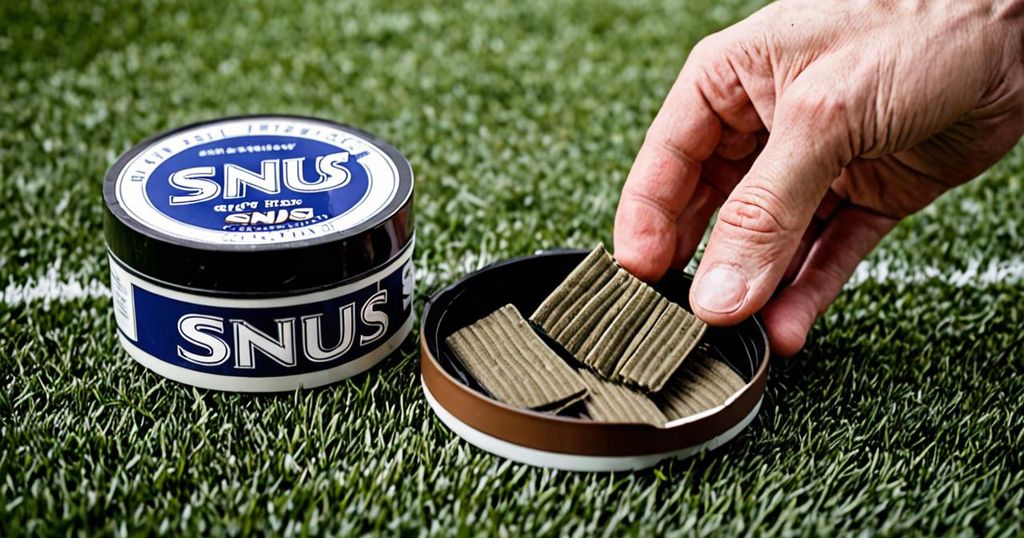In an unprecedented study, it has been disclosed that nearly twenty percent of male professional athletes utilize snus, nicotine pouches, or a combination of the two. Moreover, nearly half of these athletes are aiming to cease usage of snus within the upcoming 12 months.
The study, commissioned by the Professional Footballers’ Association (PFA), was carried out by Loughborough University. Significantly, it revealed that two out of every five athletes had experimented with the pouches at least once. Nonetheless, the report posits that the actual usage figures may be higher, as certain athletes may be hesitant to disclose their use of snus even in an anonymous survey.
The survey, which encompassed 628 male players from Premier League and EFL clubs, in addition to 51 Women’s Super League players, discovered that 18% of male players and 22% of female players are currently utilizing snus. In terms of those who have tried snus, the figures escalate to 42% for male players and 39% for female players. Nearly half of the male players expressed a desire to discontinue snus usage within the next year, whereas only 9% of female players shared this sentiment.
Snus is a tobacco product in a sachet that is placed under the lip to release nicotine into the bloodstream. Although it is prohibited for sale in the United Kingdom, its usage is not illegal. In contrast, tobacco-free nicotine pouches are within the bounds of the law. The majority of players were found to use nicotine pouches instead of tobacco-based snus, often equating nicotine pouches with “snus”.
The study also provided insights into the reasons behind footballers’ use of snus. 45% of male players and 11% of female players who believed that snus provided a performance advantage cited improved mental readiness as the primary benefit. Additionally, the survey indicated that snus was commonly employed by players to relax and manage stress, serving as a coping mechanism. It also functioned as an appetite suppressant, and many players initiated usage of the products to assimilate with their senior teammates.
However, the report underscored potential adverse effects of snus usage, including an elevated risk of certain cancers and cardiovascular disease. Addressing the lack of education surrounding snus, the PFA noted the increasing number of players utilizing snus and some seeking assistance for addiction. It was also revealed that the majority of players had not previously received any education about snus, leading to aspects of nicotine dependence and withdrawal symptoms.
In response to the study, Dr. Michael Bennett, the PFA’s director of player wellbeing, stressed the necessity for informed decisions about snus usage among players, clubs, and medical personnel. Dr. Daniel Read, lead researcher at Loughborough University London, added that the findings demonstrate the unusually high prevalence of snus usage among professional footballers and the rationales behind their usage.
As this study brings attention to the disconcerting trend of snus usage among footballers, it underscores the significance of education and support to address the potential risks associated with these products.



